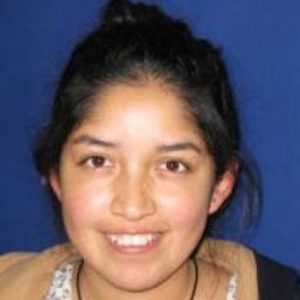IRES Seminar Series
Time: 12:30pm to 1:30pm (every Thursday)
Location: AERL Theatre (room 120), 2202 Main Mall
View Erika’s presentation here.
View Claire’s presentation here.
*********************************************************************************
Crop Species Diversity Changes in Mexico: 1980 – 2016
Abstract:
Mexico is one of the main centres of origin of agriculture and domestication of a diversity of plant species that are fundamental for food security. Given the importance of conserving traditional crops, research in the country has mainly focused on crop diversity at the genetic level of these few crops. However, thanks to the country’s geographic location, the biocultural heterogeneity of the landscape, and the openness to the international market, today, the country grows more than 200 food crop species. This study describes the temporal and spatial changes of crop species diversity from 1980 to 2016 at the regional level with state and municipal level data. Changes in diversity are explained using simple linear models, except for the southern region, where we found a breakpoint in the 1990s. Our results indicate that while richness has increased in every region, evenness has been maintained.
Erika Luna

IRES MSc Program
Bio:
Erika Luna is an MSc student at IRES, co-supervised by Dr. Navin Ramankutty and Dr. Amanda Giang. She holds a BSc in Earth and Environmental Sciences from the National Autonomous University of Mexico (UNAM). Before joining IRES in 2019, Erika worked as Research Assistant at different universities across North America (UC Berkeley, Université de Montréal, UNAM and UBC) and as a data collector for FAO Mexico. Her main research interests are all around Food Security. Erika is also co-founder of DAMUSA (a non-profit based in Mexico City), looking to advance the collection and visualization of Gender Data in food systems.
Environmental Justice and the Enforcement of Air Pollution Laws in Canada
Abstract:
This study considers the nexus of air pollution, environmental law enforcement, and environmental justice. Prior to this study, each of these dimensions have been studied either in pairs or in isolation in Canada, but no study has examined the three together. To address this gap, I examined data on the enforcement of air pollution laws from eight provinces and at the federal level, finding lacking data quality and availability, which violates the community right to know. Across provincial and federal jurisdictions, regulators appear to employ a cooperative (or voluntary) approach to enforcement. Environmental priorities and enforcement outcomes do not align on several levels, especially when it pertains to large emitters or repeat offenders of air pollution laws. Finally, some environmental injustice patterns are observed near where enforcement actions occur. Several recommendations are offered within and without existing policy systems.
Claire Ewing

IRES MSc Program
Bio:
Claire joined IRES in 2019 as an MSc student supervised by Dr. David Boyd. Claire is interested in ecology, environmental policy, environmental justice, and more. Her research focuses on the law enforcement dimensions of environmental justice and air pollution in Canada. Before matriculating to IRES, Claire studied Politics and International Affairs at Wake Forest University, with minors in Biology and Environmental Studies. There, she researched the deforestation caused by artisanal-scale gold mining with Dr. Miles Silman’s lab, and completed her undergraduate thesis on the effect of the US-China trade wars on the solar panel industry. Outside of Academia, Claire has worked on water conservation with a Coloradan water utility, sustainability in private companies with Xanterra Parks and Recreation, and more. Claire grew up in Colorado, United States and enjoys the outdoors, travel, public radio, and gardening.